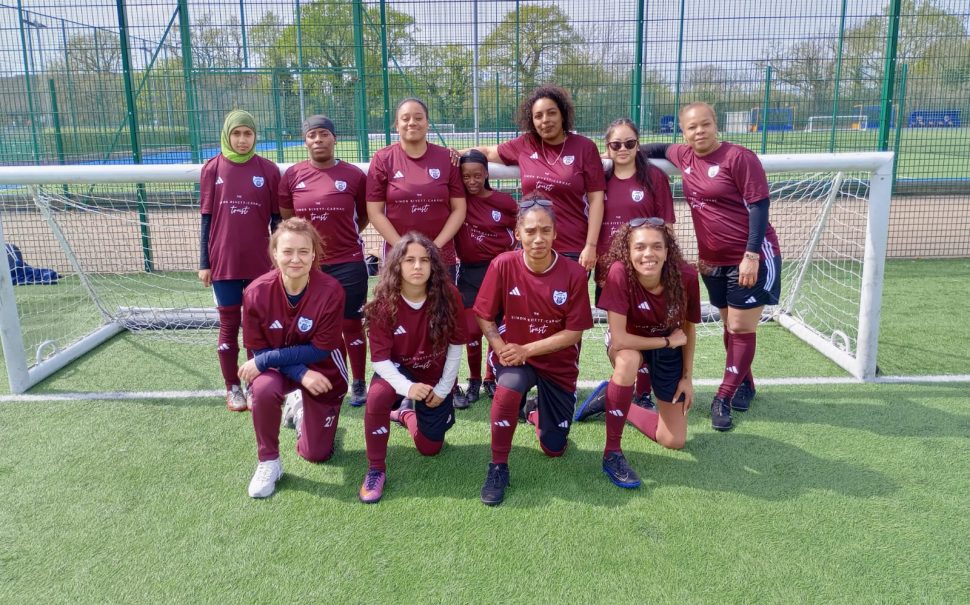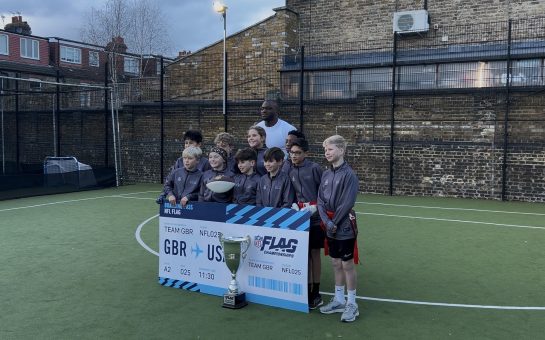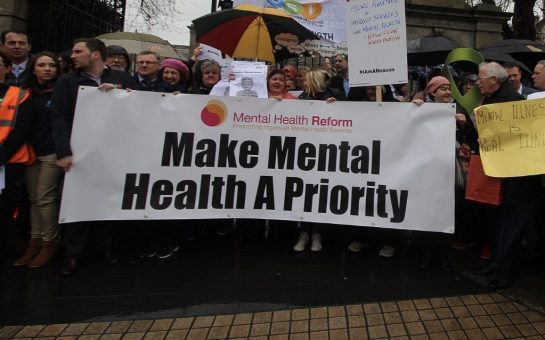Women’s football has received a lot of traction in recent years, with the success of the Lionesses leading the way for women and girls to become more involved in the sport.
However, although the number of registered women’s football teams in England has more than doubled since 2016 ー with around 12,200 registered teams now ー the same cannot be said for those specialised in mental health or disability-focused gameplay.
According to the FA, that figure sits at around 200 registered teams, where women’s football clubs that are under the wider umbrella of pan-disability still remain widely under-represented.
But one north London football team, Minds United WFC, has set out with the intention to change that.
What makes his football club different, founder and president of the club Traik Kaidi said is that they seek to promote mental wellbeing through inclusive sports.
“Our model is specifically tailored for people with mental health difficulties. We don’t just play a normal football 11-a-side Sunday league. We play in actual mental health leagues and disability leagues,” he said.
Set in the borough of Kensington and Chelsea, the club was originally founded in 2019 as a men’s mental health community football programme, under the name Minds United FC.
After partnering with Middlesex FA in 2021, a women’s-only division specialising in recreational football sessions for mental health and disabilities was created.
Since then, more than 150 women have taken part in the weekly sessions hosted at Westway Sports Centre, which Kaidi said has given them opportunities to enter leagues, play in mental health tournaments, and for some, to gain coaching and referee qualifications.
In an area still dealing with the trauma of the Grenfell Tower fire, in 2017- which claimed the lives of 72 people – the club has offered a space for community, support, and inclusion.
In recent years, the women’s team has even had the opportunity to play internationally, where at the 2023 E.A.S.I (European Association for Sport Integration) Cup in the Netherlands, they won against the Dutch team.
However, leading a grassroots football club has not come without a few challenges.
Kaidi said: “A big problem with a lot of women’s football, especially in mental health and disability, is there’s not that many teams.
“So then it becomes difficult to find challenges, except for going into community football, where then the players are at a much higher level, much fitter and it ends up being very one-sided.”
Funding is also an issue. As a community organisation, Minds United relies on grants rather than donations to keep the club running.
However, with most grants lasting a maximum of one year and many involving a four-month-long application and approval process, Kaidi maintains that it is not easy to continually find and access new avenues of funding.
Aaliyah, one of the club’s volunteer-turned-assistant coaches, added: “A lot of people also don’t really want to provide funding because they don’t see the need for it.
“But actually there is a need. For those who do want to play football, a lot of sessions only run for three or four weeks before being cut because there’s not enough funding.”
Speaking of some of the wider struggles that players face in accessing pitches and playing time, she said: “People come from Park Royal all the way to Kensington because they don’t have any football clubs in their area.
“There’s just not enough places in London that do women’s-only football.”
Despite the demand for women’s mental health football rising, the team still struggles to maintain player numbers.
Between work commitments, new coaches, and injuries, Tyrone Spence, the team’s interim coach, said: “Last year we had over 30 players, now we have barely 15.”
Kaidi also believes the partial blame may lie on the FA for not pushing out women’s football sooner, citing the organisation’s historic ban on women’s football in 1921 that would last more than 51 years.
He said: “I suppose these things will take years. If there were more people interested in supporting women’s football, then they could generate more income in the game and create more overall demand.
“Because the girls that are engaged with us, they love it. They’re always turning up.”
The proof is with the women that make up Minds United WFC.
Ayesha, a long-time player who joined the club in 2020, said that Minds United has allowed her to meet new people, build lasting friendships and improve her skills.
“Everyone and all the coaches that have supported me with my skills, they’re like family basically,” she said.
Now the club wants more players, more tournament wins, and a little more support from outside organisations.
Kaidi said: “If everyone put in the same effort as a lot of us are putting in behind the scenes, we could make more things happen.”
One of those things may be the Minds United Women’s Inclusion Cup, set to take place sometime between this and next year.
After the previous cups’ success in 2024, Kaidi hopes to organise more inclusive tournaments in the future, and encourage more women to take part.
Featured image credit: Minds United FC





Join the discussion